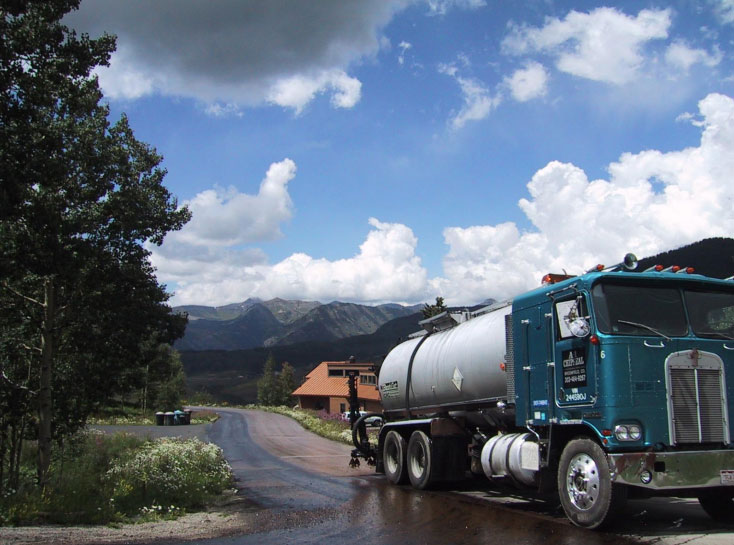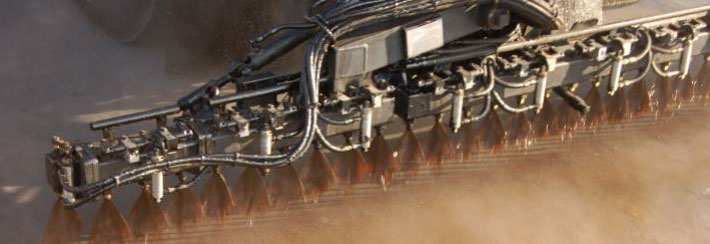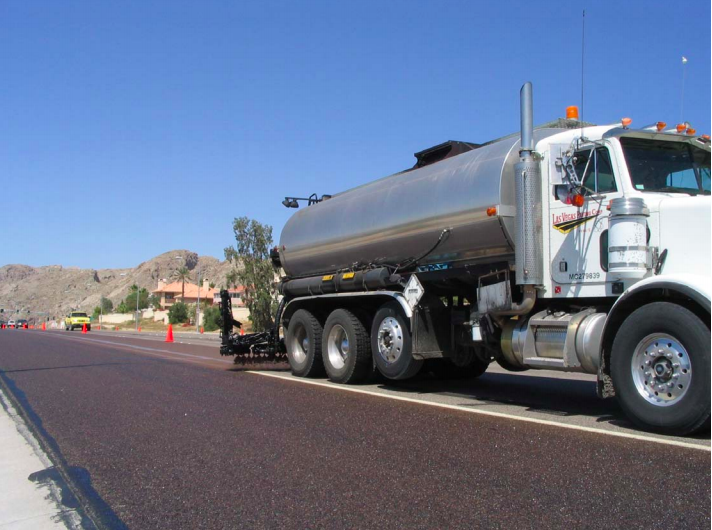PASS® Scrub and Rejuvenating Fog Seals
What Is Fog Seal?
Fog seals and rejuvenating seals are tremendous methods for maintaining pavement conditions, but the drawback for this type of process is that the skid values are immediately reduced, potentially limiting the treatment to only pavements with high skid values to begin with. Lowering the skid value also increases the risk of an incident on the roadway.
Fog seals can be treated using sand which will partially help to increase the skid value of the road, but the sand is very temporary, does not embed into the road well, and discolors the newly treated surface.


How To Apply Fog Seal
A process by which a unique polymer modified asphalt recycling agent, PASS®, is applied to a pavement surface at a rate of .15-.45 gallons per square yard depending on the pavement condition and cover aggregate. A mixture of asphalt emulsion and water applied to the asphalt surface of a road, street or highway. The primary purpose is to seal the road surface and defer surface degradation.
A specifically designed drag broom is then pulled through the emulsion, filling cracks and voids left open by the initial application. Next, an even coat of sand (Scrub Seal), chips (Chip Seal) or other readily available aggregate is applied over the emulsion at a rate of 10-25 pounds per square yard. This seal is then rolled with pneumatic tire compactors.
Finally, the excess aggregate is swept up approximately 1-2 hours after application, depending on weather conditions and local traffic. These steps follow right after one another, minimizing duration of lane closures.
Why Use Fog Seal?
- An inexpensive way of arresting raveling and adding binder back to aged surfaces
- Fog seals are also useful in chip seal applications to hold chips in place in fresh seal coats to help prevent vehicle damage arising from flying chips
- Improve sealing or waterproofing
- Improve the surface appearance
When to Use Fog Seal?
- Pavement surface condition – Dry mixes, high air voids, and surfaces showing minor and/or moderate raveling.
- When chip seals are in need to prevent aggregate loss.
- Pavement age – relatively newer pavement (not more than 2 years in service)

